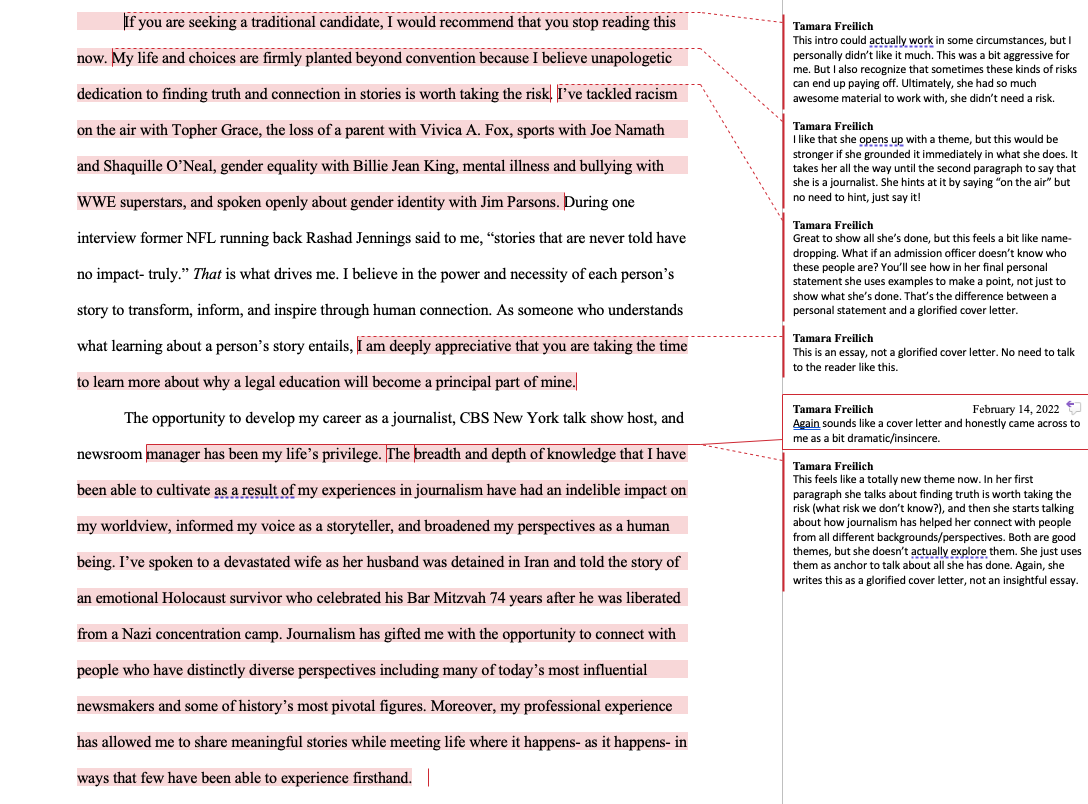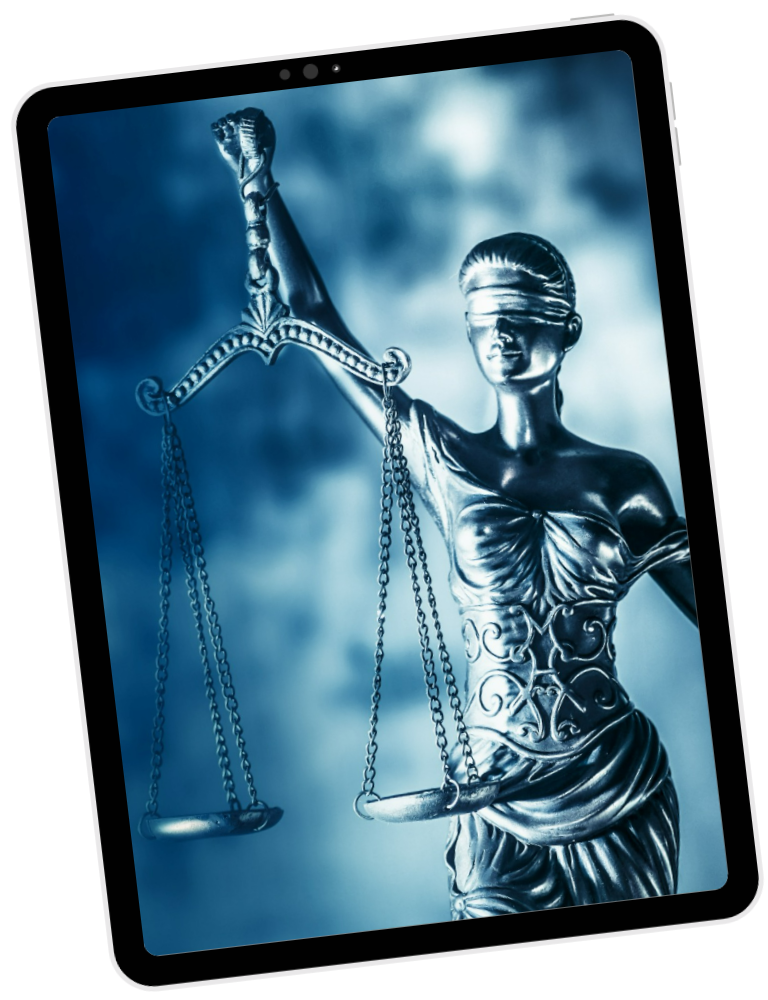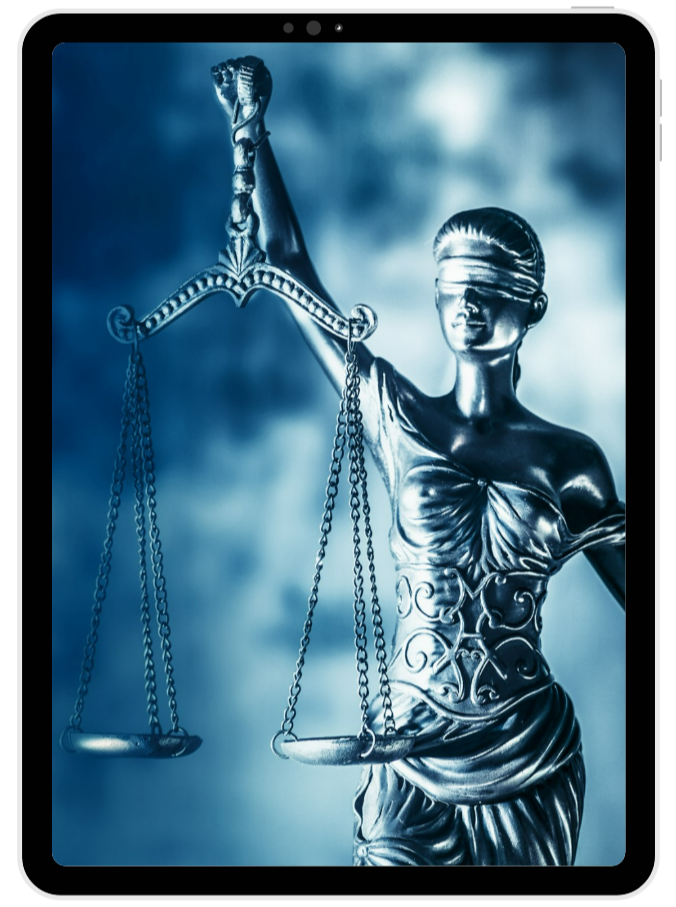Too many law school applicants write a personal statement that is essentially just repeating the most impressive things on an applicant’s resume and explaining why that prepares them well for law school.
Writing these kinds of essays, what I call a glorified cover letter, is probably the biggest law school personal statement mistake I see. This is where an applicant uses the personal statement to essentially just talk about what they’ve done and why law schools should want that.
I just spoke to an applicant yesterday who was about to commit this common law school personal statement mistake. He had written his personal statement about how his work as a fundraiser for a non-profit that tutored underprivileged youth gave him “debating” and “persuasive” skills that would make him a good litigator.
If this were a cover letter for a litigation position, this kind of essay would be fine. But…
Applying to law school is not the same as applying to a job!
It was hard for me to not cut him off because this kind of personal statement . . . (sorry to say) is BORING.
And the idea that law schools just want applicants who know how to “debate” and “argue” is an incredibly unnuanced understanding of what lawyers do.
And also it is just an overused tripe.
Writing this kind of “glorified cover letter” personal statement is not only boring, but it also doesn’t really do much for you.
You’ve already given law schools your resume, and you even have to go in depth on your activities on the application itself. You’re not really offering law schools anything they don’t already know.
And it also just leaves so much more on the table. A glorified cover letter-type personal statement doesn’t allow you to show that you can think complexly about your experiences, and draw broader insights beyond just yourself…the real key to a personal statement that wows admissions officers.
While your personal statement will inevitably touch on things in your resume, it will do so a much different way than if you were writing a cover letter.
Your experiences are more of proof to make a broader point, they’re not the point itself.
You can avoid writing a glorified cover letter by talking about your internal thinking.
How did your thinking evolve? Tell that story.
Even just adding simple emotion words can help. Such as “it angered me” or “I wondered why…” Remember, you’re ultimately using your experiences to talk about a broader “Global Insight.”
This is similar to the idea that you want to show, not just tell. A cover letter might just tell the reader “I have a strong work ethic,” but a good personal statement shows the reader this through examples and a narrative.
Let me show you a before and after from one of my own clients, Rachel. She had written a personal statement before working together, one that fell into the trap of this biggest personal statement mistake: writing the glorified cover letter.
Here is Rachel’s before and after personal statement. (ignore the spacing and formatting, which looks warped because of the blog format. but examine her content and structure closely).
Rachel’s ROUGH Draft Personal Statement (the “glorified cover letter”)


Rachel’s FINAL Personal Statement



When you went through the before and after essays, did you notice the profound difference in how she comes across between the two? Her final essay shows an applicant who is without a doubt going to come into law school and make an impact. It uses her experiences to talk about something bigger than just herself and directly links it to why she wants to go to law school.
This personal statement got her into Georgetown Law with a significant merit scholarship during Georgetown’s most competitive year to date, despite having an LSAT score 9 points below the median.
If you want more essay break-downs like this, check out my course My Winning Personal Statement, where I give you the exact formula to write a personal statement that will wow admissions officers, and show you with tons of client breakdowns how to apply it regardless of your background or law school you’re applying to.
Read more:
Law School Personal Statement Topics to Avoid
How to Choose a Law School Personal Statement Topic
How to Write a Law School Personal Statement Topic





